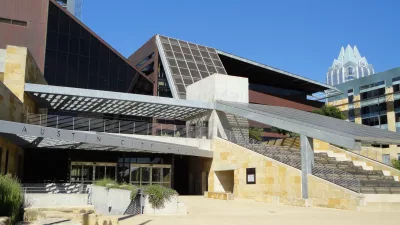Texas Comptroller Glenn Hegar today revised the Certification Revenue Estimate (CRE), announcing better than expected revenue growth in fiscal 2018 and an improved economic outlook for fiscal 2019.
In a July 11 letter to state leadership, Hegar said the state will have $110.17 billion in General Revenue-Related (GR-R) funds available for general purpose spending for the 2018-19 biennium, resulting in a projected fiscal 2019 ending balance of $2.67 billion, an increase from the $94 million ending balance projected in the October 2017 CRE. The ending balance does not account for any 2018-19 supplemental appropriations the Legislature may make.
“An economic expansion exceeding our expectations from last year has resulted in revenue collections this fiscal year outpacing CRE projections,” Hegar said. “Texas in particular benefited from rising oil prices and production and the consequent increase in economic activity. The best ongoing indicator of the robust Texas economy is the state’s rate of job growth. Texas added more than 350,000 new jobs in the 12 months ending in May 2018, and the state’s unemployment rate has been at or near historic lows in recent months.”
Through June of fiscal 2018, sales and use tax collections, Texas’ largest source of state tax revenue, are up 10 percent from June of fiscal 2017. The Comptroller increased the sales tax revenue projection for fiscal 2018 by more than $1.2 billion.
Total tax collections through June, buoyed in part by oil and natural gas production tax collections exceeding last year’s totals by more than 50 percent, are up 11.8 percent compared to a year ago. Total GR-R collections are up 9.8 percent compared to last year.
Proposition 7, an amendment to the Texas Constitution approved by Texas voters in 2015, provides that the first $2.5 billion in sales tax collections exceeding $28 billion in any fiscal year be deposited to the State Highway Fund (SHF). Sales tax collections in fiscal 2018 are likely to exceed $30.5 billion, meaning that Hegar will allocate the full $2.5 billion to the SHF from fiscal 2018 collections.
The Economic Stabilization Fund (ESF; the state’s “Rainy Day Fund”) and the SHF both receive funding from oil and natural gas severance taxes. In November 2017, Hegar deposited $734 million in each of those funds. Hegar estimates a deposit of $1.37 billion in each fund in November 2018, up from the October CRE estimate of $777 million. The ESF will have a balance of $11.85 billion at the end of fiscal 2019, the largest ending balance in the fund’s history.
“Though nearly all current economic indicators remain positive and revenue collections have exceeded our previous expectations, there are significant risks to the forecast,” Hegar said. “A trade war, a withdrawal from the North American Free Trade Agreement or a significant downturn in the price of oil would reduce our potential economic growth. The current outlook, however, is for continued growth through fiscal 2019 for both the economy and state revenue.”





